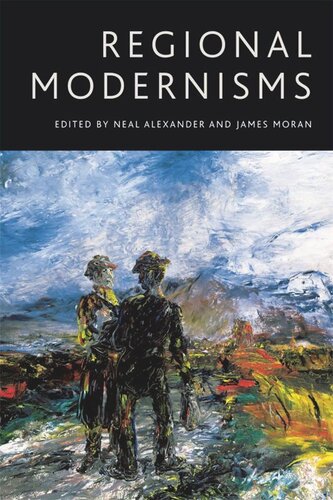

Most ebook files are in PDF format, so you can easily read them using various software such as Foxit Reader or directly on the Google Chrome browser.
Some ebook files are released by publishers in other formats such as .awz, .mobi, .epub, .fb2, etc. You may need to install specific software to read these formats on mobile/PC, such as Calibre.
Please read the tutorial at this link: https://ebookbell.com/faq
We offer FREE conversion to the popular formats you request; however, this may take some time. Therefore, right after payment, please email us, and we will try to provide the service as quickly as possible.
For some exceptional file formats or broken links (if any), please refrain from opening any disputes. Instead, email us first, and we will try to assist within a maximum of 6 hours.
EbookBell Team

4.3
58 reviewsWhere did literary modernism happen? In this book, a range of scholars seek to answer this question, re-evaluating the parameters of modernism in the light of recent developments in literary geography as well as literary history, examining an array of different literary forms including novels, poetry, theatre, and ‘little magazines’. The volume identifies and appraises the local attachments of modernist texts in particular geographical regions and also interrogates the idea of the 'regional' in light of the alienating displacements of transnational modernity.
The essays collected here make fresh interventions in the field of modernist studies and acknowledge the legacies of regional modernisms for post-war representations of place and landscape. Individual essays discuss canonical figures (W. B. Yeats, Ezra Pound, James Joyce and D.H. Lawrence) as well as more marginal or lesser-known writers (Dylan Thomas, Hugh MacDiarmid, J. M. Synge, Sylvia Townsend Warner, Alfred Orage, Leo Walmsley, Lynette Roberts, Michael McLaverty, and Basil Bunting) from across Britain and Ireland.